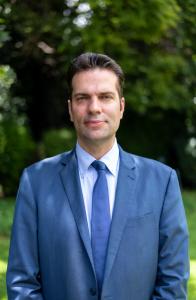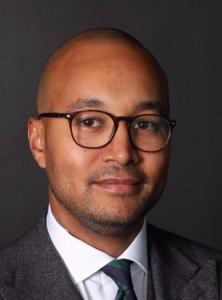On 18 March 2021, his 85th birthday, De Klerk shared his cancer diagnosis with the public, to which he has now succumbed. Until the end, he was committed to the rule of law in a democratic South Africa, through the work of the FW de Klerk Foundation, which he founded in 1999 and in which he played a major role.
FW de Klerk was born in Johannesburg in 1936, to extremely conservative parents. De Klerk became politicised at an early age, as his father was a Minister to two Presidents: he sat in the Cabinet of his brother-in-law, President Johannes Strijdom, and in the cabinet of President Hendrik Verwoerd, who are considered the architects of apartheid. In addition to the extreme political views held in his parental home, De Klerk also received a strict religious upbringing, as a member of the Reformed Church in South Africa. His family belonged to a conservative wing of the Church, also called ‘Doppers’, which interpreted the Calvinist faith particularly strictly.
Following his legal studies at the University of Potchefstroom - like Stellenbosch, an ideological centre of Afrikaner nationalism - De Klerk worked as a lawyer in the industrial town of Vereeniging, just outside Johannesburg.
In 1972, his political career took off when he was elected to Parliament as a Member of the ruling National Party (NP). Six years later, he was appointed to the Cabinet. From 1978 to 1989, he held various ministerial posts, including that of Minister of Home Affairs. For many years, he was thus a member of the repressive apartheid regime, which, although it was subject to international sanctions, was long tolerated by the West, as a bulwark against communism in Africa during the Cold War.
On 2 February 1989, de Klerk replaced President PW Botha as leader of the National Party. It was only then that he learned of the government's secret negotiations with the imprisoned Nelson Mandela. He was surprised, but not at all astonished. De Klerk was not known as a reformer within the Cabinet at the time, however, he had known for years that it was only a matter of time before the apartheid regime would no longer be able to survive.
On 15 August 1989, he succeeded President PW Botha, when the latter suffered a stroke. At the beginning of his term, Botha tried to initiate small reforms, but ended up as a stubborn hardliner who ruled with emergency laws to counter right-wing tendencies inside and outside the government. Unlike Botha, De Klerk sensed the possibility of far-reaching reforms, especially when the fall of the Berlin Wall heralded the end of the bipolar world order.
On 2 February 1990 - less than six months after taking office - De Klerk announced the end of apartheid. De Klerk made this decision at great personal risk, burdened with the fear of coup attempts and attacks by white reactionary groups. Moreover, at that time, he could not be sure whether the black majority would be willing to peacefully co-exist with their former oppressors.
The country teetered on the cusp of civil war but due to De Klerk's leadership and steadfastness, he was able to convince the white - still radicalised - population of his path of reform, certain that he was doing the right thing not only politically but also morally. Although the African National Congress (ANC) did not give up the armed struggle, he set about abolishing the existing apartheid laws at record speed. De Klerk unbanned the ANC, as well as other political organisations, and released all political prisoners on Robben Island prison. He trusted Nelson Mandela, whom he had released, to put South Africa on the path to reconciliation and democracy. He never had full certainty about the ANC’s real intentions. Trust was the only thing he had.
It was De Klerk who dared to take the first step into an uncertain future, to make a peaceful transition in South Africa possible. That is why De Klerk - together with Nelson Mandela - received the Nobel Peace Prize. Without De Klerk's courage, the political success of the South African giant Mandela would never have been possible. After the transition talks between the government, the ANC and several other political parties and civil society organisations failed within the framework of the Convention for a Democratic South Africa (CODESA). Once again, it was thanks to the greatness of spirit of both Mandela and De Klerk that the negotiation process was brought to a successful conclusion. The result was peace and South Africa's democratic constitution, which received worldwide admiration.
In the negotiated transition, both leaders chalked up successes.
Mandela prevailed with his demand of "One Man - One Vote", an electoral system without ethnic minority rights. These rights were demanded by De Klerk, out of concern for the future of the Afrikaners, to whom he felt himself committed. Having failed in this key desire, the racial composition of the country guaranteed the end of white political power. Importantly though, De Klerk succeeded in averting an immediate, radical redistribution of property, which could have had a catastrophic effect on the economy, as was the case later in Zimbabwe, for example. The economic stability and wealth of the country - which was predominantly in the hands of white South Africans - was therefore preserved and with it, the path for upward economic mobility of formerly marginalised South Africans.
After the first free election, De Klerk became a Deputy President in the Government of National Unity. Recognising the new political balance of power, he left in protest in 1996. It was obvious that the ANC no longer needed the support of the NP in a democratic South Africa. A year later, he resigned from the party chairmanship and ended his political career. From then on, he devoted himself to embedding democratic structures in the country through his Foundation.
De Klerk’s person and legacy will remain contested.
As a Member of Cabinet, it seems unlikely that he was not aware of at least some of the apartheid regime’s atrocities. Even though he admitted the injustices that had taken place, he denied the accusation that he bore personal responsibility for them. This damaged his image as peacebuilder enormously, especially among the black population. Among many white South Africans too, there are reservations about De Klerk. They accuse him of having handed over the country hastily and without a plan to the ANC, which, in the past 27 years has not brought the country forward sufficiently and is running it into the ground. The hegemonic ANC also likes to ignore De Klerk's contribution to democracy in South Africa. His name stands for the voluntary handover of power by the white minority and the negotiation of a peaceful transition. This version contradicts the ANC's narrative, according to which freedom was won solely through resistance by the ANC. Less gloriously for the ANC, it was, in fact, De Klerk’s willingness to negotiate that opened the door to the transition. Nothing in the context of the times suggests that any other leader would have charted the bold course he chose, as swiftly.
Like the case of Mikhail Gorbachev, De Klerk's historic achievement of peacefully overturning an authoritarian regime is more recognised abroad than at home. Starting out as a staunch supporter of the apartheid regime, it was De Klerk who showed understanding at the crucial moment and seized the opportunity to put South Africa on the path to democracy with courage and firm will. He not only enabled peace and freedom for the wider population, but also freed white South Africans from the racist indoctrination of the regime.
The death of FW de Klerk signifies the loss of a great South African statesman who was not universally loved, but whose legacy is nothing less than pluralist democracy in South Africa. This achievement, both exemplary and invaluable to the world, remains unforgotten. May his soul rest in peace.






You need to sign in in order to comment.